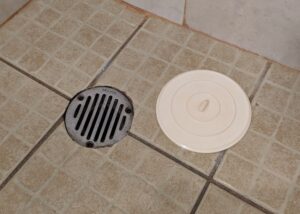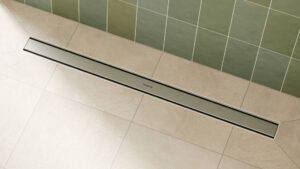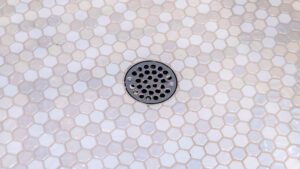Have you ever wondered why does my shower drain smell like sewage? It can be quite unpleasant to step into your bathroom and be greeted by a foul odor. Not only does it disrupt your peace, but it also raises concerns about potential plumbing issues. Understanding the root causes of these odors and knowing how to address them is crucial. In this article, we will explore the common reasons behind such smells and provide practical solutions to help you maintain a fresh and clean bathroom environment.

Understanding the Causes of Sewer Odor
1. Dry P-Trap
The P-trap is a U-shaped pipe designed to trap water and prevent sewer gases from entering your home. When the P-trap dries out, it can no longer block these gases, leading to a sewage odor. This often happens in showers that are not frequently used.
2. Biofilm Buildup
A biofilm is a layer of bacteria and organic matter that accumulates inside pipes. Over time, this buildup can emit a foul smell. Regular cleaning can prevent this problem.
3. Clogged Vent Pipes
Vent pipes regulate air pressure in your plumbing system. If they become clogged, they can contribute to sewer gas odors. This is a more complex issue that often requires professional attention.
4. Broken or Damaged Sewer Lines
Damaged sewer lines can lead to leaks, allowing sewer gases to escape. This is a serious issue that needs immediate repair.
Solutions to Eliminate Shower Drain Odor
1. Regular Maintenance
Performing regular maintenance, such as cleaning the drain and running water through unused showers, can prevent odors from developing. For tips on deep cleaning, visit deep clean shower drain.
2. Use Natural Cleaners
Natural cleaners, like baking soda and vinegar, can effectively clean your drains without harsh chemicals. Simply pour a cup of baking soda followed by a cup of vinegar down the drain, let it sit, and rinse with hot water.
3. Professional Plumbing Services
If the problem persists, it may be time to call in the professionals. They can inspect your system for issues like clogged vent pipes or damaged sewer lines. For more information on plumbing services, visit professional plumbing services.
4. Repairing Sewer Lines
If you suspect a damaged sewer line, its crucial to have it repaired immediately to prevent further damage and eliminate odors.
Preventive Measures to Avoid Future Odors
1. Regular Use of Water
Ensure that water regularly flows through your shower to keep the P-trap full and effective.
2. Install Drain Covers
Drain covers can prevent hair and debris from entering the drain, reducing the chances of clogs and odors. For more on preventing clogs, explore hair clogs.
3. Regular Inspections
Schedule annual plumbing inspections to catch potential issues before they become serious.
Conclusion
Understanding why does my shower drain smell like sewage is the first step in addressing and preventing it. By maintaining your plumbing system, using natural cleaners, and seeking professional help when needed, you can keep your bathroom smelling fresh and clean. Remember, preventive measures are often the best way to avoid future problems.

FAQ
1. How can I tell if my P-trap is dry?
If you notice a sewage smell coming from your drain, pour a glass of water down it. If the odor dissipates, the P-trap was likely dry.
2. Are chemical cleaners safe for drains?
Chemical cleaners can be effective but may damage pipes over time. Natural alternatives are often safer for both your plumbing and the environment.
3. When should I call a plumber?
If odors persist despite your best efforts, or if you suspect a serious issue like a broken sewer line, its time to call a professional plumber.
This article contains affiliate links. We may earn a commission at no extra cost to you.




